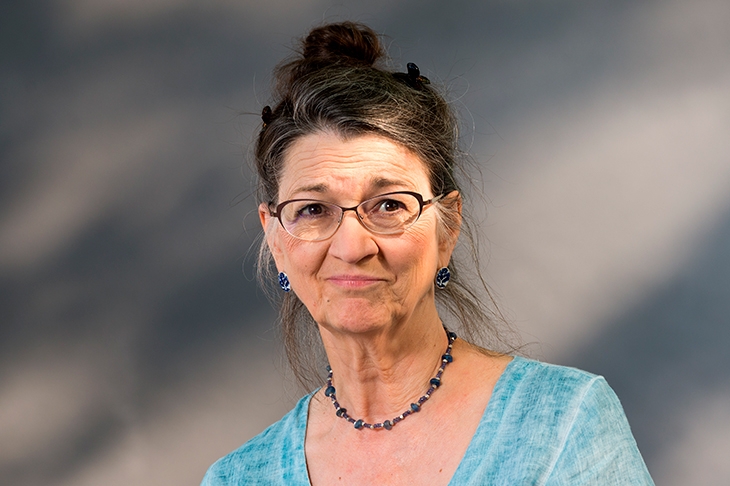There comes a time after the death of parents when grief subsides, the sense of loss eases, and you, the child, are left wondering who those people were. What were they like? Not as you knew them as parents, but as people? For most of us, as the cliché goes, time is a healer, and these questions, thoughts, urges and memories lose their urgency. For others, and Marina Warner is clearly one, there is a more active, urgent, passionate and, yes, Proustian process at work — a need to bear witness — and it does not leave you alone until the questions are answered.
For Warner, the questions relate in particular to her mother, but a decade passed before she approached the objects, images and written words her mother left behind. There were no doubt many reasons besides grief for the delay — Warner is a busy author and academic. But this question of what her parents were like, especially her mother, has demanded an answer, and for a reason that became obvious when I looked online for evidence of her parents. On a website devoted to the peerage, her mother is listed as ‘Emilia (?)’. No family name and no place or date of birth. The ‘life mislaid’ of the title is that of her mother, and the story that this ‘inventory’ reveals is of her hopes, desires and expectations, of her triumphs and defeats.
The author’s father, Esmond Warner, a round-faced old Etonian with a receding hairline, congenial manner and piercing laugh, had fought as a Desert Rat in North Africa before landing in southern Italy in late 1943. In Bari, Esmond, then in his late thirties, met Ilia, in her early twenties. After a few visits to the family home, he proposed and they quickly married. While he moved on to fight elsewhere, his wife, like some war booty, found herself on a plane to London. She settled into the Kensington mansion flat of her parents-in-law, the cricketing legend ‘Plum’ Warner and his wife, and waited for her husband’s return and the start of her new life.
Warner is such a skilful and imaginative writer that much of this and the rest of the book reads like lived experience. Several years ago she announced that she was writing ‘a kind of novel,’ but the book has ended up being the happiest of concoctions, a mix of fiction and fact, observation and speculation. Each episode is carefully constructed from the things that remain, the inventory of the title. There is a chapter provoked by a powder compact, another by a cigarette tin, while the one about her father’s Box Brownie leads us to photographs of the tall and elegant young bride, and one of her attending a Buckingham Palace garden party with her father-in-law after the war.
Another chapter is led by the bespoke brogues Esmond ordered for his wife when he returned from the war, part of the uniform that he thought would allow her to morph into an Englishwoman. But before the transition was complete, he took Ilia and the very young Marina off to Cairo, where he had persuaded his old Eton schoolmate Billy Smith that W.H. Smith’s needed a branch, and that he was the man to open and run it.
Cairo stories fill the heart of the book, for it was there, in a penthouse apartment between the Nile and the British-founded sporting club, with their servant and nanny and cook, that the Warners’ marriage flourished and failed, and there that Marina’s earliest memories are to be found. They arrived in 1947, when King Farouk was still on the throne and the largest British army base outside the UK still straddled the Suez Canal. They left five years later, after the Black Saturday riots in Cairo had burned British and other interests, most famously Shepheard’s Hotel.
The Cairo branch of W.H. Smith was also torched, and visiting the smoking ruins of Esmond’s bookshop is the author’s earliest memory, which might not be surprising as this was the moment that seems to have broken her father. ‘I shall never be the same man again,’ he wrote to his employers, and so it turned out.
But this is not so much his story as that of his long-suffering wife, who bore the brunt not only of being a foreigner who had married an Englishman but now also of being abused and mistreated by the man she had loved. On one of her many fascinating diversions, some of which are long and complex, Warner writes about Egyptian shabtis, figures that were buried with the ancient dead to answer for them and perform tasks they might be expected to do in the afterworld. Through the notebooks Ilia left behind, Warner feels that her mother is asking her to be a shabti, ‘to answer, to witness the arc of her life’.
This she has done, following Ilia’s progression from a leggy girl from Bari to the wife and mother who found both the space and confidence to grow in a Cairo that was about to erupt. ‘It feels sacrilegious to press too far into the private life of your own mother and father,’ Warner admits, and there are limits to what she is prepared to tell us. But she presses far enough to evoke with sympathy and understanding how it was for her twice-displaced mother in those last years of Farouk’s Egypt.
More than André Aciman’s memoir, Warner’s girl’s-eye view takes us on a journey to understand her childhood, the nature of her parents’ relationship and the way one might have lived a lifetime ago. At one point, perhaps frustrated by the challenges of understanding and ordering her family’s story, she complains: ‘The past won’t shape itself into a page-turning story, not for me.’ She is wrong. This brave, painful, dazzling memoir is riveting.






Comments